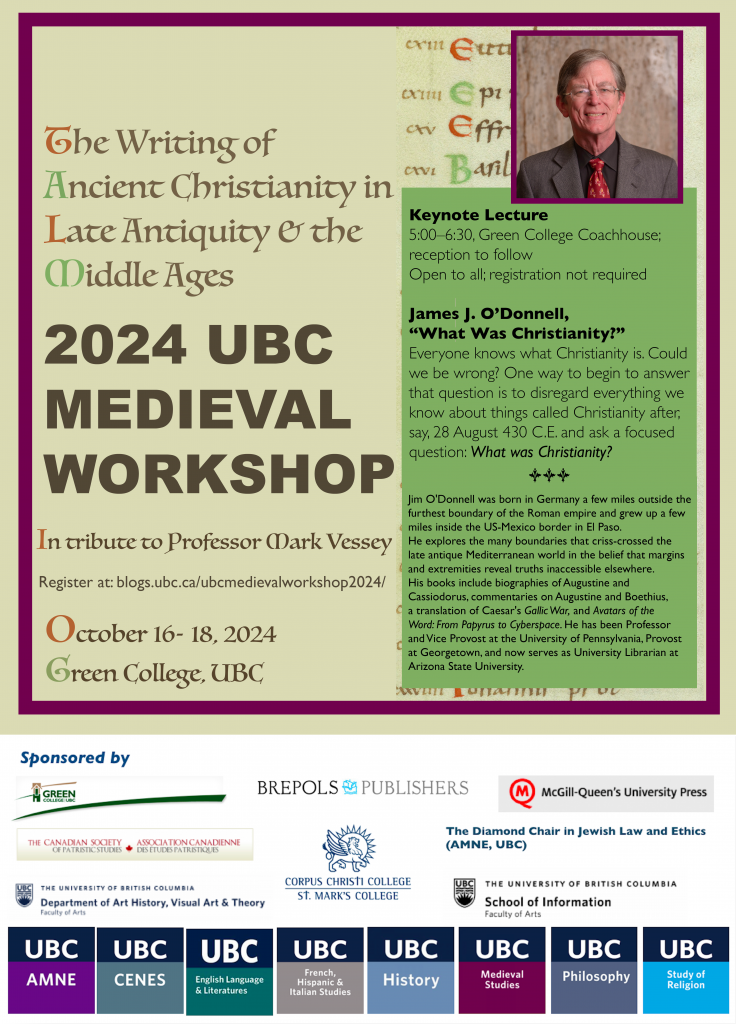
The 46th edition of the UBC Medieval Workshop will explore the late Roman Church ‘Fathers’ as writers/authors in their own works and cultural settings as well as the complex afterlives of their texts and authorial identities in the centuries after their deaths. The wide-ranging papers that will be presented, by leading authorities in the fields of Late Antique and Medieval Studies together with early-career researchers and graduate students, are intended in tribute to a superlative and prolific scholar of Late Antiquity: UBC Professor Mark Vessey (Dept. of English).
Prof. Vessey’s work has shed new, often surprising light on the complex texts of major late antique Christian writers, their particular cultural settings, and the posthumous readers and evolving literary legacies of the late Roman ‘Church Fathers,’ especially Augustine and Jerome. Over 35-plus years, Prof. Vessey’s adventurous, vigorous scholarship has been crucially path-breaking as the traditional discipline of Patristics (the study of the Church Fathers, normally constrained within the particular bounds of Theology) has broadened and deepened into the more theoretically sophisticated interdisciplinary field of Late Antiquity. This field – exemplified in Prof. Vessey’s work – combines literary criticism, philology, history, art history, archaeology, philosophy as well as the essential auxiliary sciences of premodern studies, such as palaeography, codicology, and numismatics.
The workshop’s diverse group of presenters will explore some of the fruitful paths broken and avenues of inquiry suggested by Prof. Vessey’s influential scholarship. In so doing, they will illuminate more expansively the distinctive literary landscapes inhabited by late Roman readers and by the medieval (and still later) readers who would construct an idealized world of ‘patristic’ writers at the authoritative core of ‘ancient Christianity’ and an expansive, extra-scriptural literary canon for the post-Roman cultures of medieval Europe and beyond.
The presentations at this workshop will serve to illuminate more clearly key connections among ancient, late antique, medieval, and modern cultures of writing, reading, books, and canon-formation together with the historical (and on-going) consequences for such configurations of knowledge and authority.
Please register here.
From the drop-down menu select either Regular, Student, or Remote-only registration.